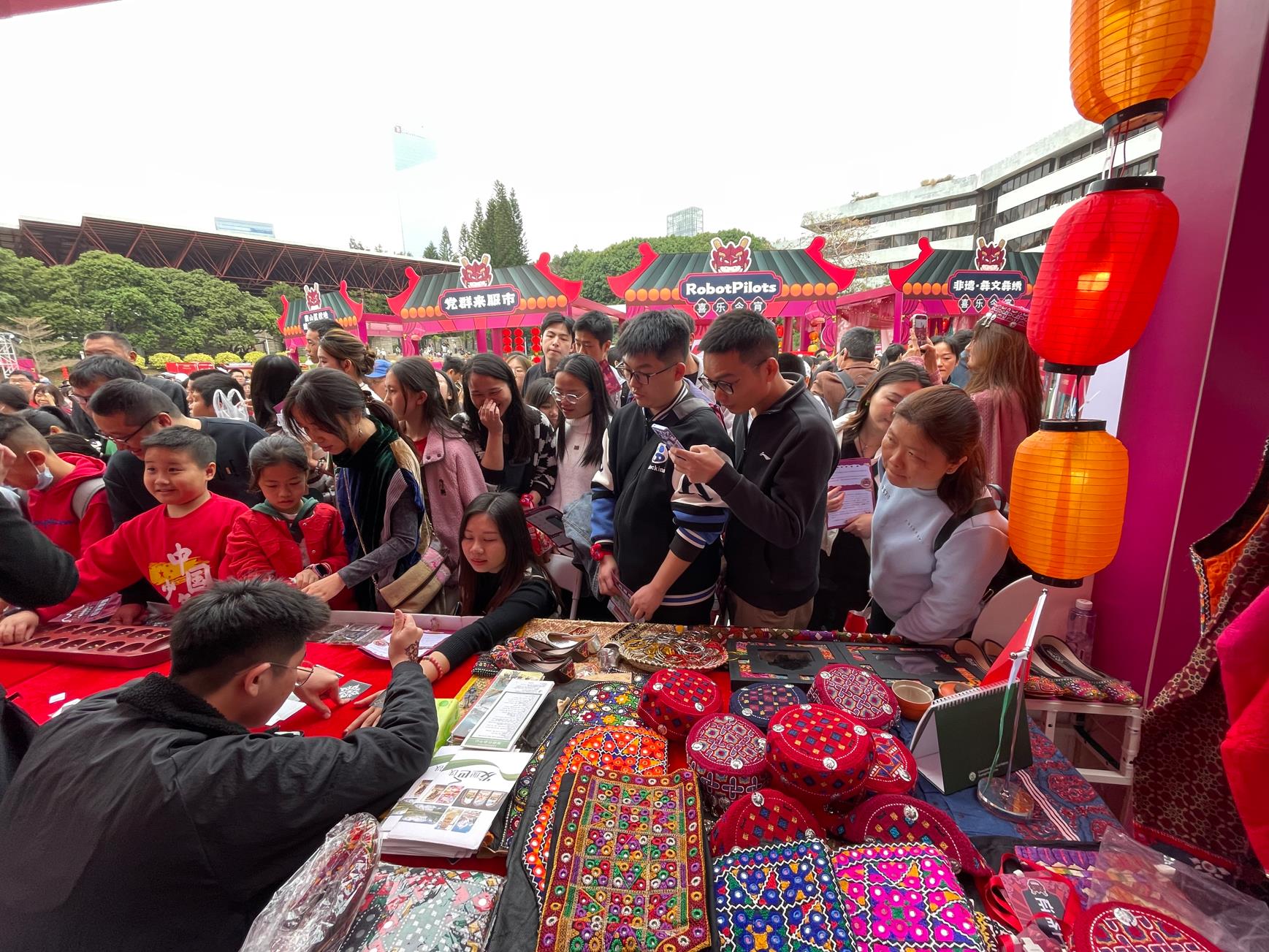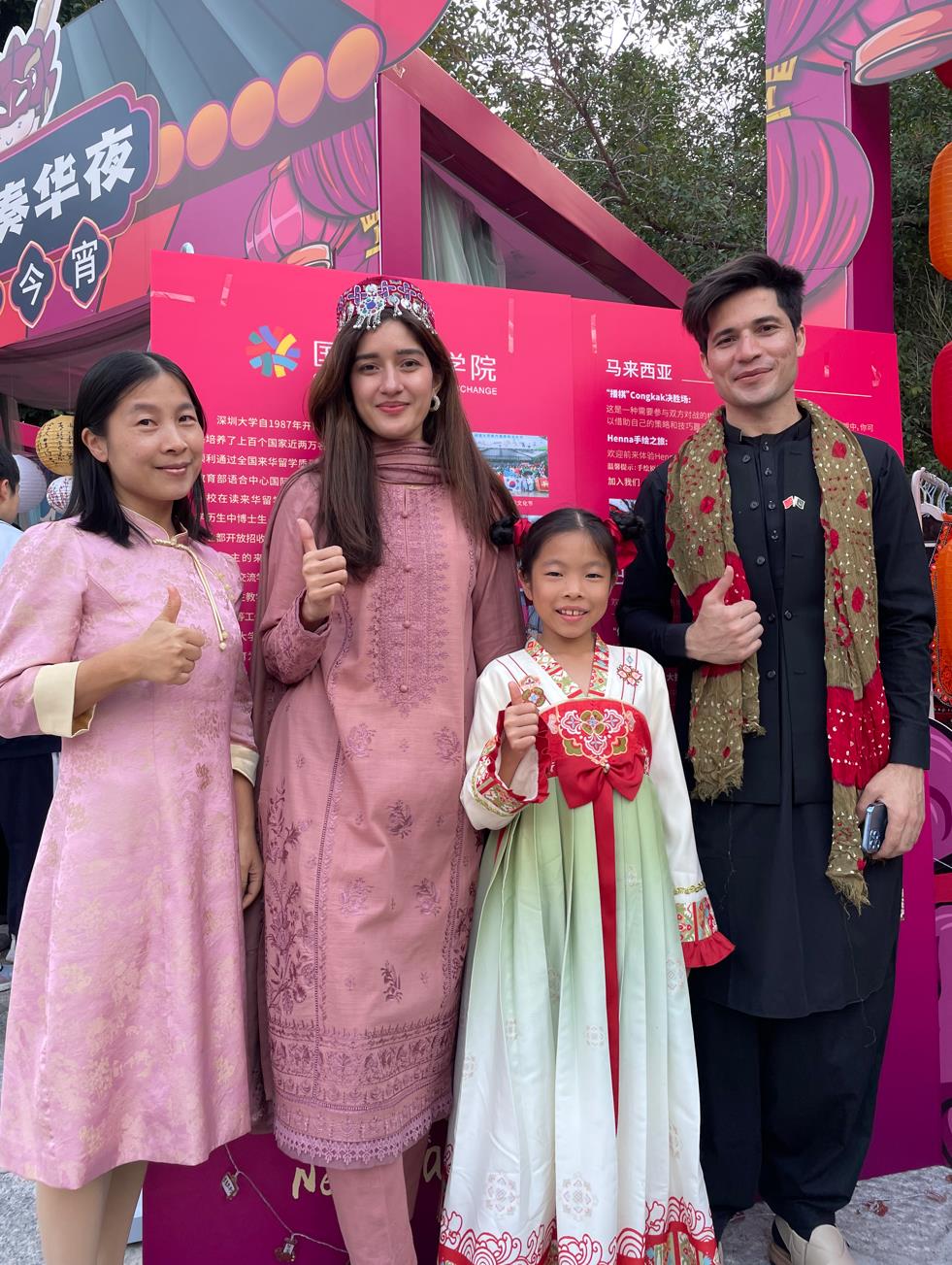SHENZHEN (PEN) : Shenzhen University orchestrated a groundbreaking Spring Festival Lantern Market, marking the beginning of a new tradition that brought together citizens and academia in a delightful celebration. The event captivated attendees with a tapestry of Pakistani food, heritage, and vultures during the culture festival held on Saturday at Shenzhen University in Shenzhen.
The event showcased a myriad of rich and colorful activities, drawing in students, faculty, staff, alumni, and thousands of enthusiastic Shenzhen citizens.
One of the highlights of this festival was the collaboration between the Pakistan Consulate in Guangzhou, Pakistani Students at Shenzhen University, and the Shenzhen University College of International Exchange. Together, they organized a stall that served as a cultural melting pot, representing Pakistan’s diverse heritage alongside other nations.

The Pakistani stall became a focal point, attracting thousands of Chinese locals, foreigners, and children eager to explore and learn about Pakistani culture. Visitors reveled in the opportunity to don traditional handwoven jackets, caps, and shawls, immersing themselves in the vibrant colors and patterns that define Pakistani attire. The allure of intricately designed bangles captivated many, with visitors cherishing them as souvenirs from this unique cultural exchange.
Particular attention was directed toward the handcrafted shoes, known as “khussas,” which piqued the interest of the local populace. The handmade shoes not only offered a glimpse into Pakistani craftsmanship but also provided a tangible connection to the rich traditions of the South Asian nation.
The stall proudly displayed handwoven decorations and wall pieces from Pakistan, showcasing the country’s artistic prowess. Visitors, both Chinese and from other nationalities, demonstrated a keen interest in these exquisite pieces, fostering an appreciation for the cultural intricacies of Pakistan.

To enhance the educational aspect of the exchange, brochures containing valuable information about Pakistan were distributed, allowing visitors to delve deeper into the history, traditions, and customs of the country. This thoughtful initiative facilitated a deeper understanding of Pakistan’s rich cultural tapestry.
Crucial to the success of this event was the unwavering support of the General Consulate of the Islamic Republic of Pakistan. Their generous assistance in providing the necessary materials and resources ensured the effective presentation of Pakistan’s cultural heritage on the global stage.
In summary, the all-day-long event proved to be a resounding success, epitomizing the spirit of cultural exchange and mutual understanding.





